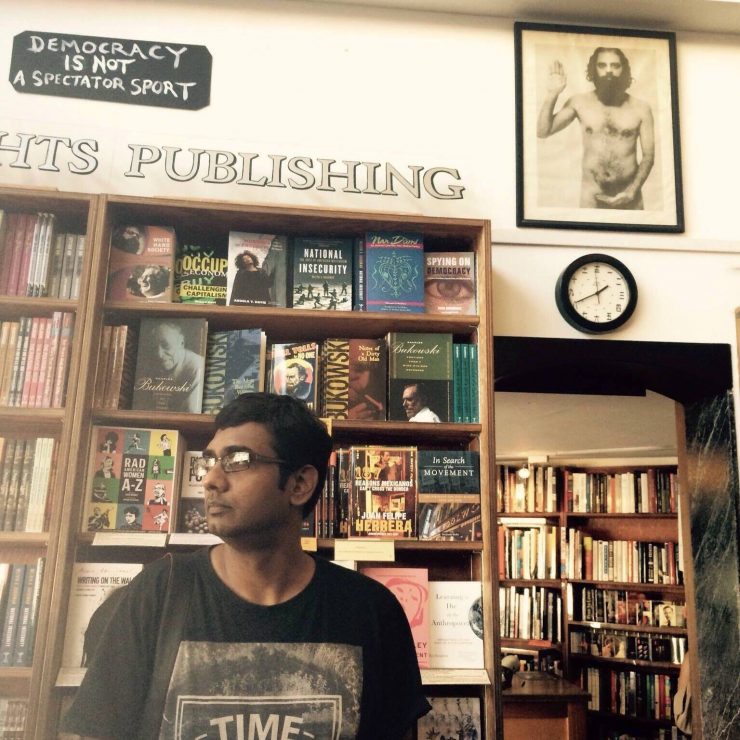The Dog-Catcher
1747
Gumastas, sowcars, spies and mahouts
maybe important—but then
there is Savari, the dog-catcher, searching
near the town gates, in kilns, the riverbank:
for canines to drown
so his only playmate, the topasse who
spasmed seeing water, and recoiled
from sunlight, returns wearing the sukkûpachi
beads he was buried in
These murders might matter: the governess’s
son in Junkceylon, the Imâm’s Lubbay;
yet nothing haunts Savari like monsieur B’s
strange tale of the 2500 dutchmen killed
by 600 dogs—their howls shipped
from Europe, their fathomless avoirdupois
*
one man : two executions
1748
When divinity spoke through
a broken noose,
and Clemency— the name
of the schooner—
brushed its masts inside
spectators, when a rope’s
courage failed
to end this man skeletal
with voyage, rats, rancid
port mistresses;
the priest
(foaming against custom)
condemned
the condemned
soul to a second hanging,
his epitaph,
a palimpsest
And to the officer prepared
to free the almost-hung: its holier
than silence, this ignoring
a lord who absolves
thick-necked vermin
About these poems
“The coromandel coast of the 18th century appears to hardly hold intrigue for many contemporary writers, though it was a most interesting era, as described in detail in the diaries of the dûbash/interpreter, Ananda Ranga Pillai. These poems strive to capture the drama, nuance and enigma that prevailed in Pondicherry at a time when the Dutch, the Marattas, the English and the French were all vying for dominion.”
Arjun Rajendran is currently working on a collection of poems set in 18th century Pondicherry. He is the poetry editor of The Bombay Literary Magazine and was the Charles Wallace Writing Fellow at Stirling (2018).
*









Add comment